
Heartaches, headaches and hukou: how China’s bureaucracy tangled people in red tape
Can the launch of the anti-red tape campaign, ‘one stop, one trip, one paper’ really allow citizens to complete their dealings with the government in just one visit?
Whether it is bouncing between various departments to accomplish simple requests, enduring long application processes or trying to keep up with new rules that arrive without warning, bureaucracy is a reality of life for most people – regardless of where they live.
In China, however, the problem has caught the government’s attention, resulting in the launch of its “one stop, one trip, one paper” movement.
That means that, ideally, citizens should be able to achieve their goals by paying just one visit to the relevant government department.
On that note, here are seven recent cases of red tape tying up Chinese citizens.
Two officials fired for blocking disability application
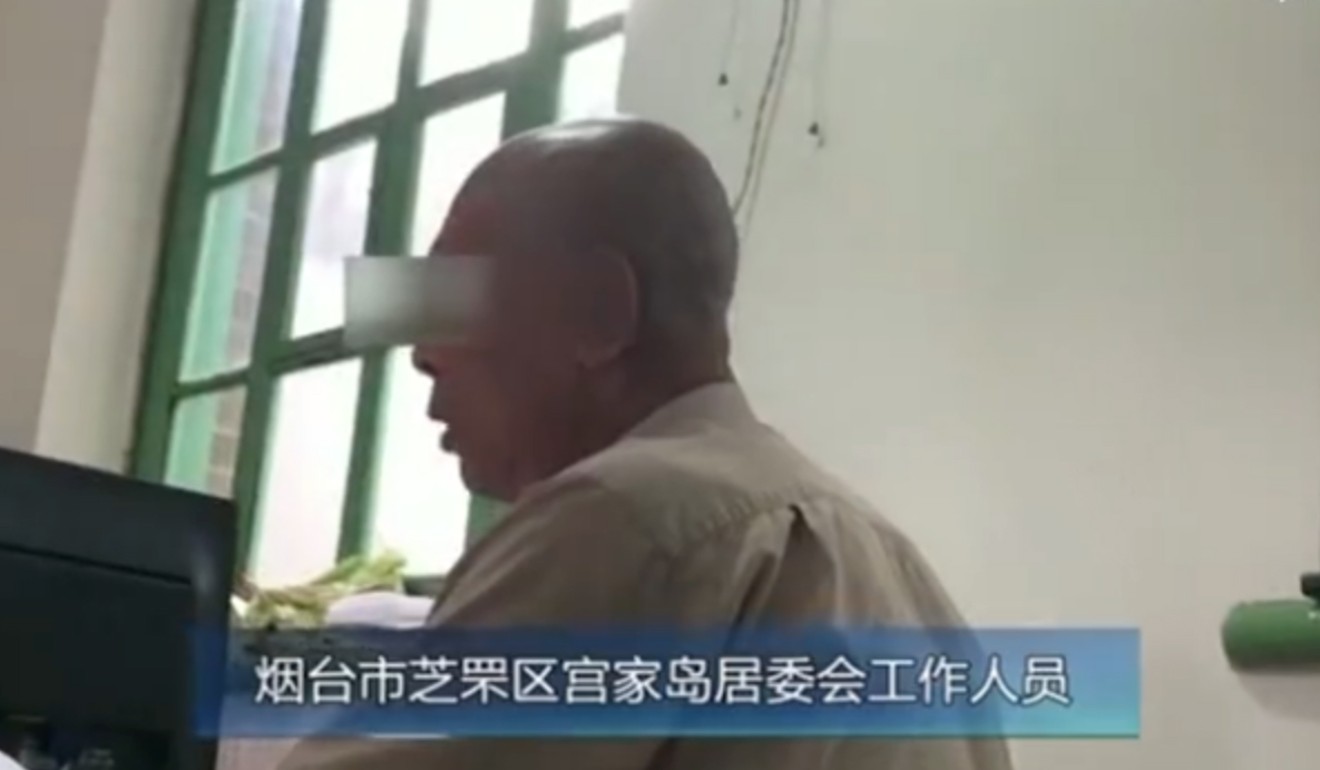
In July, a woman identified only by her surname Na, went to her local residents committee in Zhifu district in Yantai, in the eastern province of Shandong, to register her mother as disabled.
Upon Na’s arrival, an official at the front desk told her the process required the line manager’s approval.
But when she visited the line manager, he said his approval was not necessary and sent Na back to the front desk.
Upon her return, however, her application was once again blocked by the intransigent first official.
Fortunately for Na, she had recorded her experience on video and posted it on her microblog. After the post went viral, sparking an investigation, the two nervous officials began pressuring her to delete the post and withdraw her complaint.
Eventually her complaint was upheld and both officials were fired.
Ex-soldier finds himself ‘female’ on retirement papers
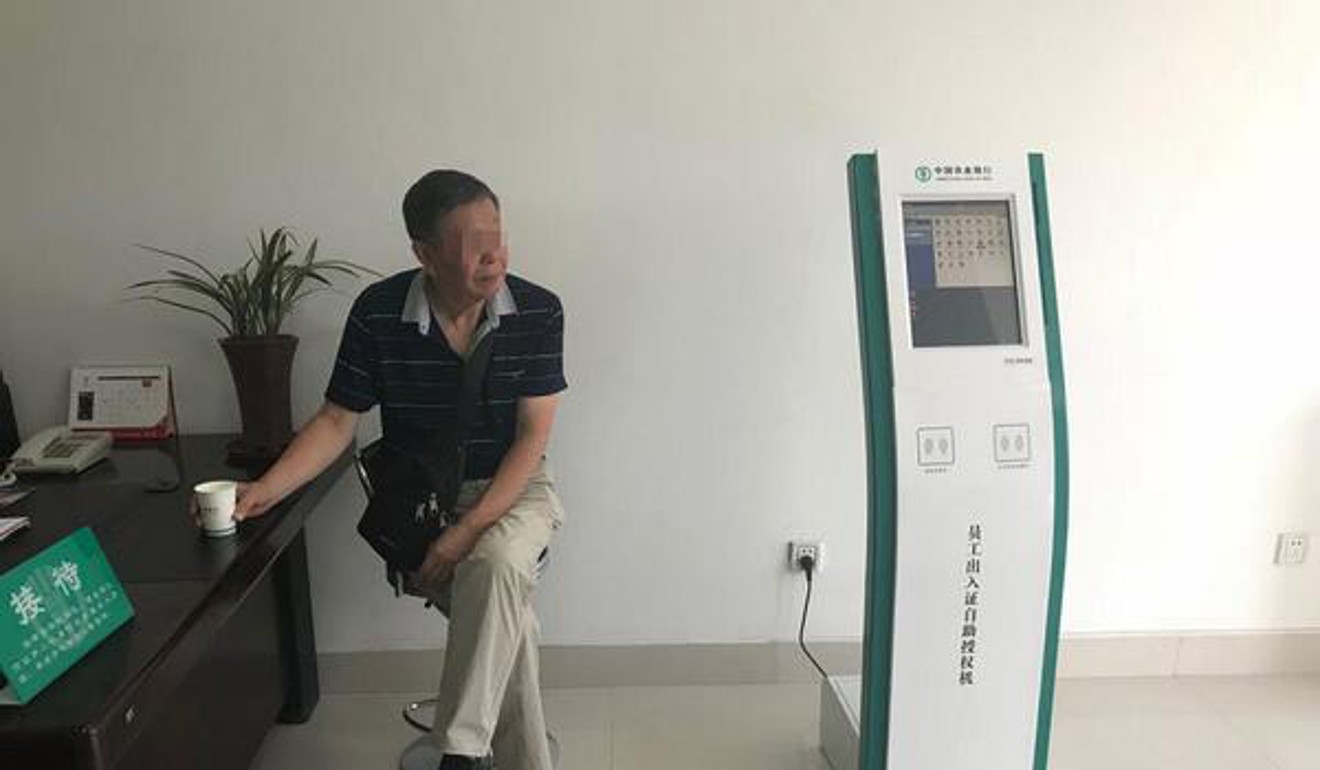
A retired bank worker from Zhengzhou in Henan province last year found out that as a former soldier, he was entitled to a military pension. So in February this year, he visited the central province’s social security bureau to get a copy of his official retirement papers.
That was when he noticed that his gender was given as “female”.
Refusing his request to edit the document, the clerk at the bureau put it back in the files.
When he returned to the bureau sometime later for an update, the 62-year-old was told he could get the error fixed by talking to his former employer.
The issue dragged on until July 30, when a local newspaper got hold of his story and reported it. The problem was resolved by 10am the same day.
Wrong birth date on school acceptance records stops woman from buying home
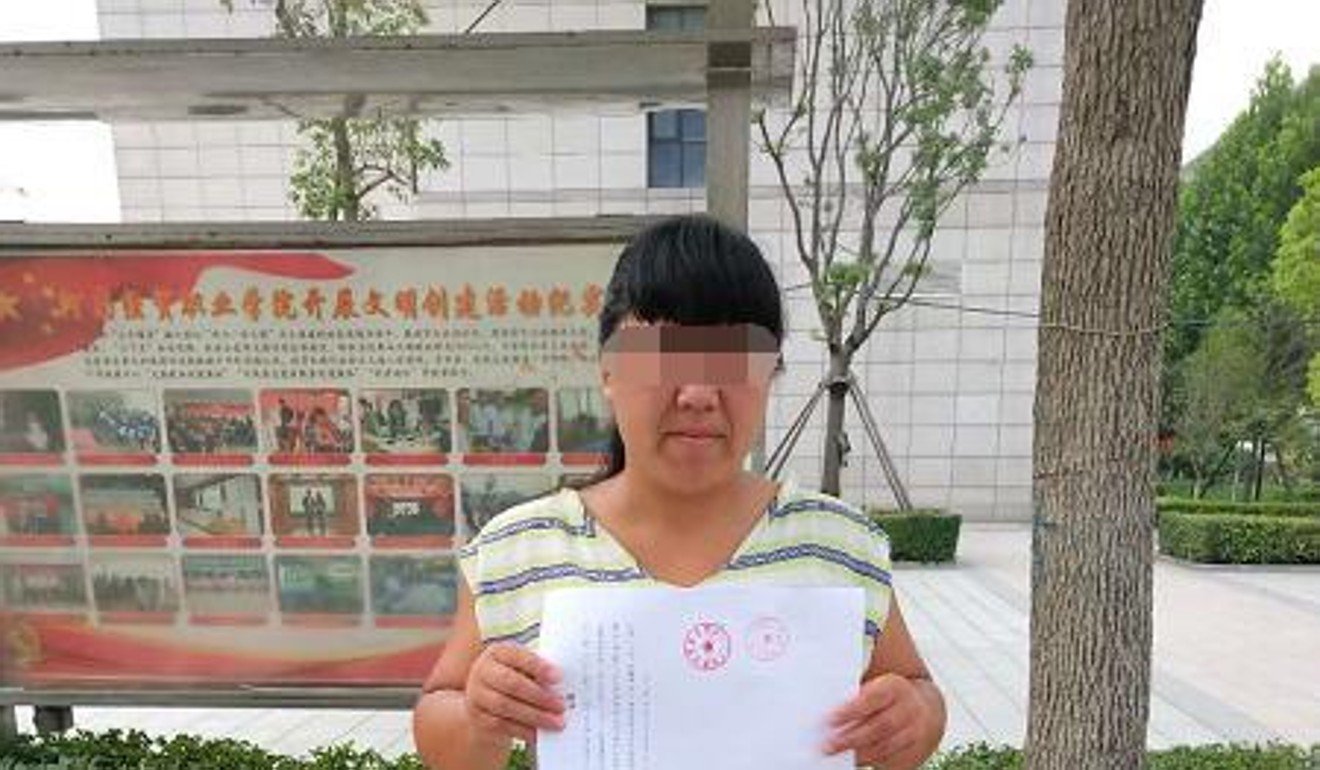
When Zhengzhou, the capital city of Henan province, rolled out a new policy allowing graduates to purchase local property, a woman, identified only by her surname, Guo, jumped at the opportunity.
But one hurdle stood in her way: her birth year was given as 1986 in her school’s acceptance records, although she was born in 1982.
In June, Guo went to her alma mater to have the birth date edited but was referred to the provincial admissions office that had issued the form.
The office declined her request as well and referred her back to the school, because, she was told, the form was designed there.
Back at the school, she was told the correction could be made only after the school located the original copy of the form – and the people who filled it out 17 years ago.
After making more than 10 trips to the admissions office and school over a month, Guo finally got the form corrected – but only after a local newspaper reporter contacted the school about the error.
Stateless building prevents couple from registering their child

A man living in a newly constructed building in Xian, the capital of Shaanxi province, was unable to obtain a birth registration form for his pregnant wife because no district was officially assigned to the building.
The problem was the building was in the northwestern province’s Weiyang district, but built by another district government. Under the Chinese hukou system of household registration, residents can only handle their citizenship and many social records through local communities.
Both district governments refused to issue the form to the man, known only by the surname of Zhu, until the Xian Civil Affairs Bureau stepped in and assigned Weiyang district to take charge of the building.
Transport permit takes over two weeks to be approved
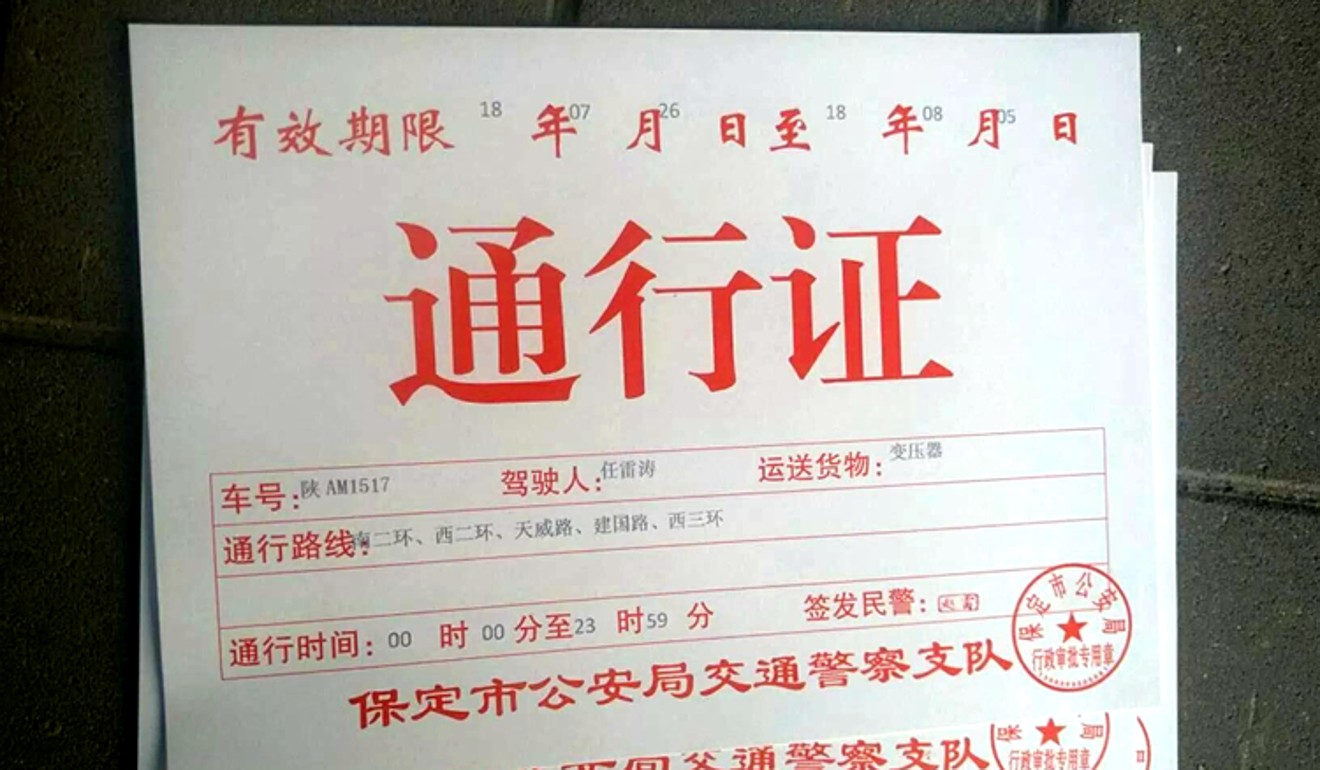
An open letter to the head of Hebei province, Wang Dongfeng, was circulated widely among truck drivers in July.
The writer, Hou Shaogang, a truck driver from Xian, was frustrated after his application for a transport permit for over-limit goods and trucks was left pending for over two weeks.
Under pressure to meet delivery deadlines and having to pay compensation if he missed a deadline, he complained to Wang in writing and questioned if delaying the process was intended to force drivers to pay locals to help them pass through.
His letter caught the attention of Wang, who launched an investigation. Two days later, the government released a statement explaining that a lack of efficiency among some officials and in work processes had led to the delay.
Although 20 days were allowed for each application to be processed, the government still apologised and 10 officers received warnings. The driver finally got his transport permission issued, a full 18 days after first sending through his application.
Food vendors forced to buy carts at higher prices
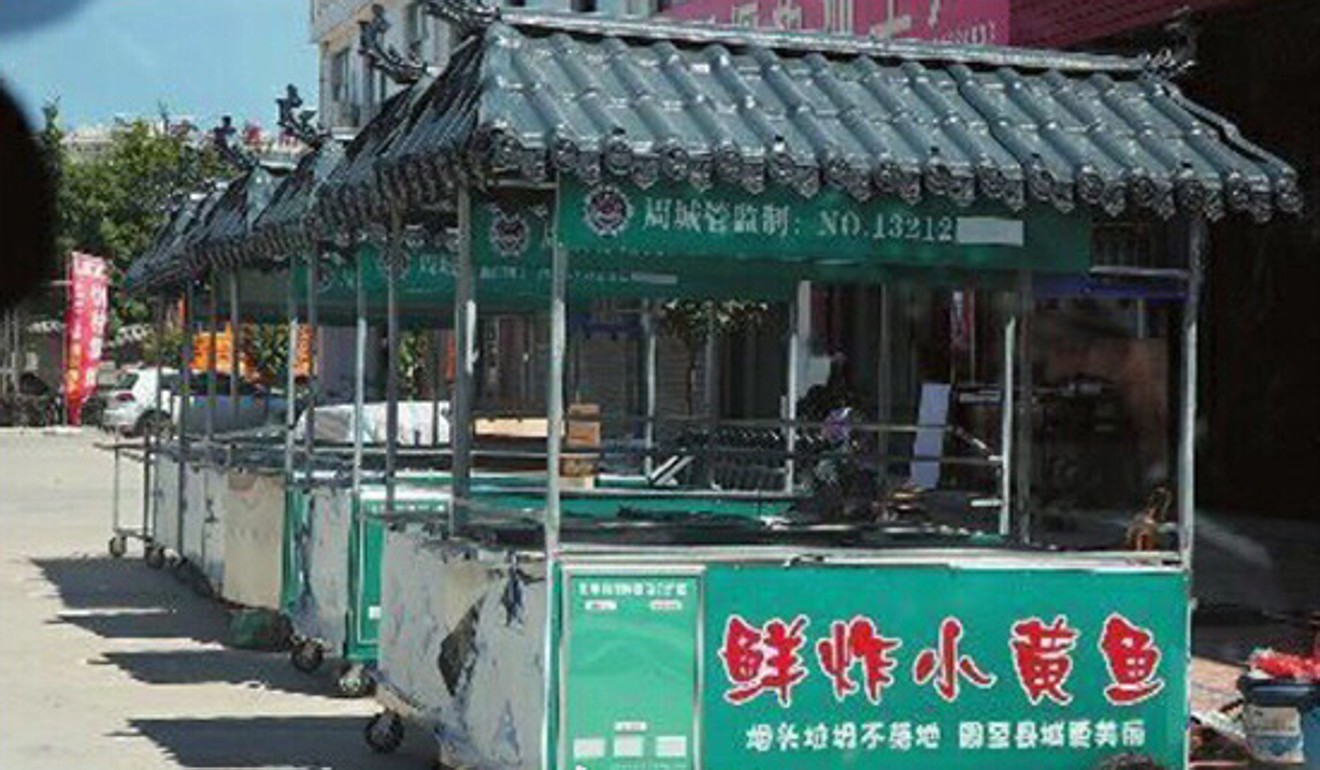
In July, food vendors in Zhouzhi, Shaanxi province got a surprise when a law enforcement staff member at the city’s urban management department told them they would have to close down unless they bought carts from a designated store.
The catch? These carts were twice as expensive as those at nearby stores.
When confronted, the staff member said the order came from a high-ranking official. One of the vendors recorded this conversation and shared it with a local newspaper, Huashang Daily.
The department later denied the statement and said the policy was put in place to beautify the city.
After Huashang Daily published an article about the issue, leaders of the county party committee and county government ordered an investigation. The staff member was also suspended from his duties.
Woman refused entry to building for wearing skirt and slippers
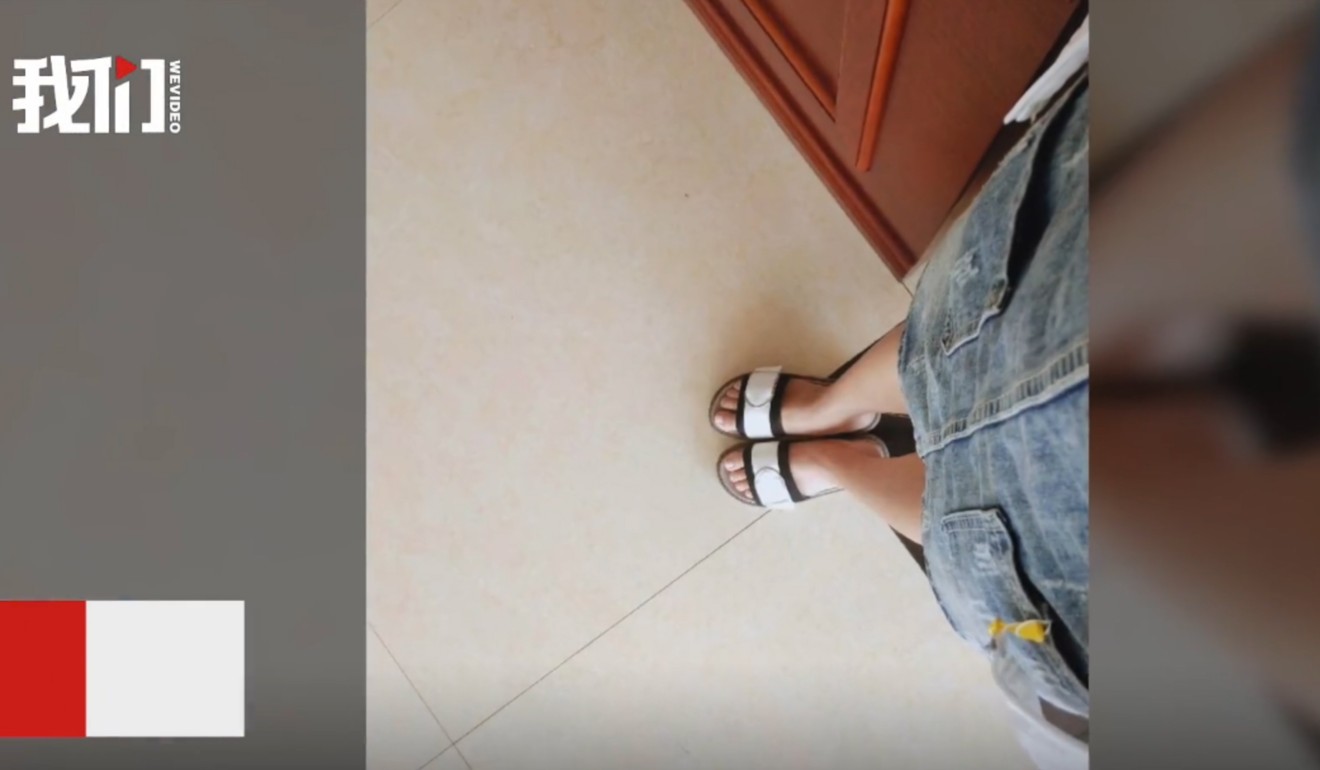
A woman was barred from entering a local government building in Binzhou, Shandong province in July for wearing slippers and a “too short skirt”.
Security contractors informed that her department’s new dress policy had ruled out such attire and asked the woman to go home to change her clothes.
On Chinese microblogging website Weibo, the woman uploaded photos of her outfit and wrote about it on that day. She had written that she and her mother had gone to the local hi-tech development department to settle her employment papers, but were refused entry.
A week earlier, she said, she had been dressed similarly and was allowed to enter the same building.
Several news outlets picked up on her post, prompting officers from the security company to call the woman and apologise for causing such inconvenience.
The company also released a statement saying it would hold a meeting to improve protocol and prevent a recurrence of similar incidents.

